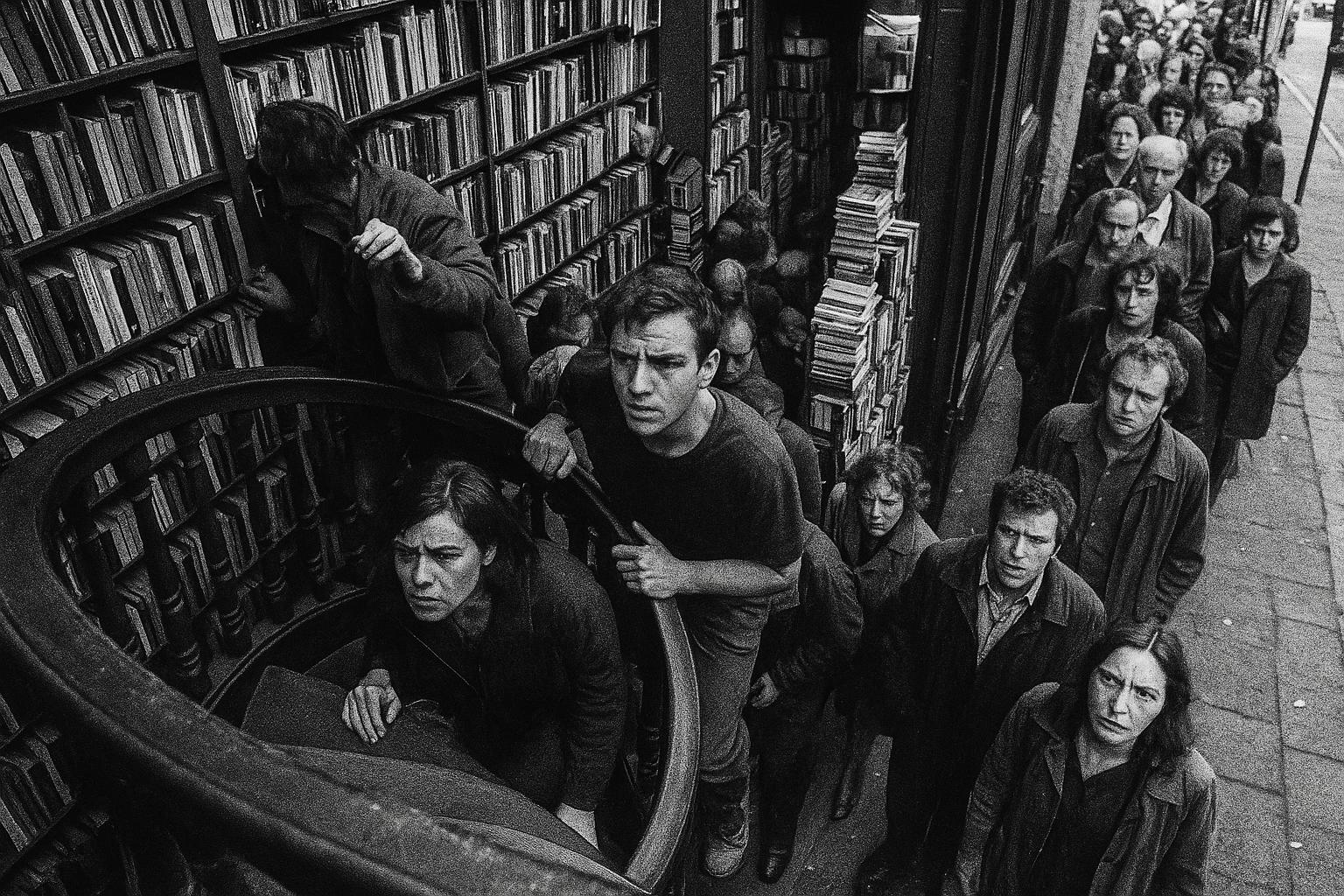An afternoon of literary celebration at Waterstones’ flagship Piccadilly shop ended in widely reported chaos, with large numbers of visitors squeezed onto the store’s multi‑level floors and many attendees describing scenes of overcrowding and confusion. According to initial coverage, some people at the chain’s BookFest called conditions “dangerous” and described the experience as “hell on earth”. The accounts triggered an immediate wave of criticism about crowd management at one of the capital’s best‑known bookshops. (Evening Standard; Yahoo News)
Witnesses and social‑media footage captured long queues spilling up stairways and onto the pavement, sweltering conditions inside parts of the building, and what several reports said was a shortage of visible staff and signage directing the flow of visitors. One account said an author suffered a panic attack amid the crush; other attendees, including disabled visitors, reported struggling to navigate the crowded space. These firsthand reports were mirrored across multiple outlets and clips shared online. (Evening Standard; News Sniffer; Inkl)
Waterstones has apologised for the negative experiences and said it will review the event. The bookseller told broadcasters and posted on social media that an “unusually high turnout” was responsible for the difficulties but that safety was not at risk. The company’s public event page sets out BookFest as a free, multi‑floor celebration with a mix of free access areas and ticketed in‑conversation panels, while signings operate on a first‑come, first‑served basis and attendees are advised to check times and arrive early. That blend of open‑access events and ticketed programming is a central operational challenge when visitor numbers surge unexpectedly. (Evening Standard; News Sniffer; Waterstones event page)
The reaction on social platforms amplified frustrations. A TikTok post by user @saf.reads — widely circulated in the wake of the day’s events — urged Waterstones to adopt a ticketing system and better crowd controls, saying the situation had created an “unsafe overcrowded and overstimulating environment” that particularly disadvantaged people with disabilities or sensory sensitivities. Other commenters argued the chain should have anticipated larger crowds and deployed clearer queuing, signage and staffing. (Yahoo News; News Sniffer)
Industry context helps explain why bookshops are suddenly coping with much bigger, harder‑to‑predict audiences. Analysts and staff quoted in earlier reporting have pointed to BookTok — the community of book‑focused creators on TikTok — as a major driver of renewed footfall and sudden spikes in demand, with viral recommendations regularly pushing titles and events into the mainstream. Commentators have noted that publishers and retailers now plan for social‑media‑fuelled surges, but that the speed and scale of some trends make precise forecasting difficult for high‑street stores. (The Guardian; Retail Gazette)
The incident has prompted calls for practical changes: clearer pre‑event information, better signage and stewarding, capacity limits for open‑access zones, and more accessible provision for those with mobility or sensory needs. Attendees and commentators urged Waterstones to apply lessons from the review it has promised; the company says it will learn from the feedback and improve future arrangements. For its part, Waterstones must now strike a balance between keeping its doors open to the public and controlling numbers to ensure safety and accessibility. (Evening Standard; Waterstones event page; Inkl; Retail Gazette)
At stake is a wider tension in contemporary book retail: how to preserve the inclusive, serendipitous atmosphere of a public bookshop while meeting the demands of large, often social‑media‑driven audiences. The Piccadilly episode has underlined that popular literary events can quickly outgrow existing arrangements, and that organisers must adapt their operational plans as the cultural dynamics that drive readership continue to change. Waterstones’ promised review will be closely watched by authors, readers and rival retailers alike. (Evening Standard; The Guardian; Retail Gazette; Waterstones event page)
📌 Reference Map:
##Reference Map:
- Paragraph 1 – [1], [2]
- Paragraph 2 – [2], [3], [5]
- Paragraph 3 – [2], [3], [4]
- Paragraph 4 – [1], [3]
- Paragraph 5 – [6], [7]
- Paragraph 6 – [2], [4], [5], [7]
- Paragraph 7 – [2], [6], [7], [4]
Source: Noah Wire Services
